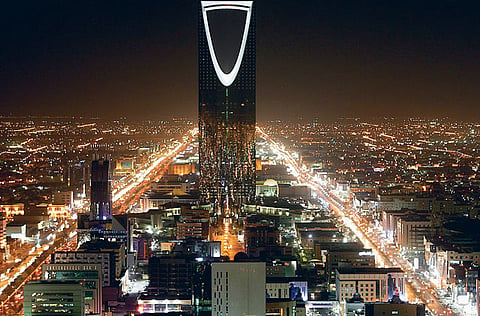World Bank launches $1b Mena infrastructure plan
Region needs up to $100b to sustain growth rates

Dubai: The Middle East and North Africa (Mena) region needs to invest between $75 billion (Dh275 billion) and $100 billion a year to sustain growth rates achieved in recent years and to boost econ-omic competitiveness, the World Bank has said.
The World Bank Group, in partnership with the Islamic Development Bank (IDB), is setting up a regional initiative that could raise up to $1 billion to close the Mena infrastructure gap, which will undermine the region's growth if not addressed.
Private sector investment in infrastructure in Mena countries is limited, especially outside the Gulf countries, despite huge unmet demand for infrastructure services.
The $1 billion initiative aims at addressing this shortfall through a regional investment vehicle to support both conventional and Sharia-compliant investment in infrastructure.
"This regional initiative will unlock new flows of private sector investment to help countries like Egypt, Morocco, Jordan or Tunisia eager to push ahead with critical infrastructure projects that will drive competitiveness and boost much needed job creation," said Robert B. Zoellick, World Bank Group President, in a statement.
He added that the proposed regional initiative would include technical assistance to help governments tackle legal, policy and institutional constraints to public-private partnerships and to develop cross-border infrastructure projects vital to regional integration and competitiveness.
Unmet demand
"The Islamic Development Bank is excited to be part of this initiative as we know there is a pipeline of viable infrastructure projects out there and unmet demand," said Dr Ahmad Mohammad Ali, President of the Jeddah-headquartered IDB. "The facility will have the flexibility to structure investments in accordance with Sharia principles which will attract untapped, alternative sources of fin-ancing." Both the IDB and the International Finance Corporation (IFC), the private sector arm of the World Bank, will work together to explore ways of providing project finance in conventional and Sharia-compliant products, which would seek to attract private investors, especially from Gulf countries.
"I have previously proposed Islamic monetisation as an ideal opportunity for the Gulf nations. The opportunity is still available and up for grabs," Dr Armen V. Papazian, financial economist and chief executive of consultancy firm Kiepr, told Gulf News.



